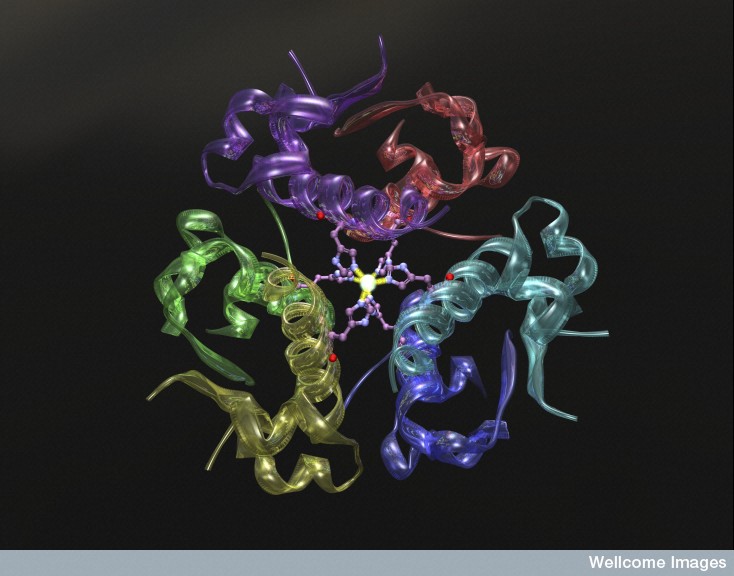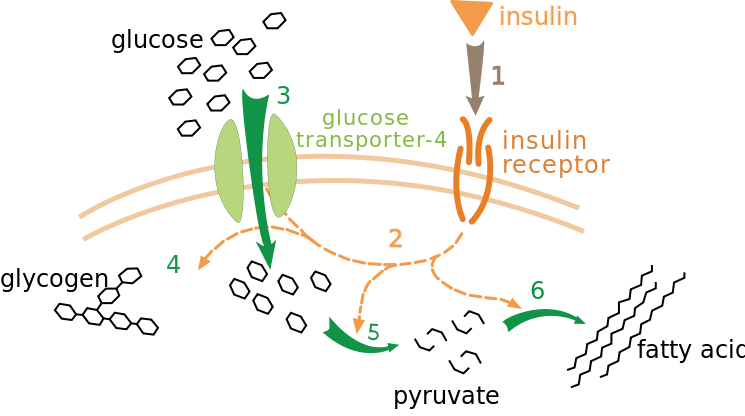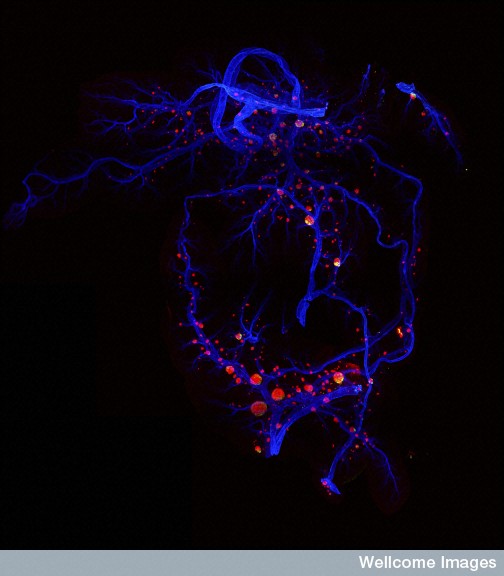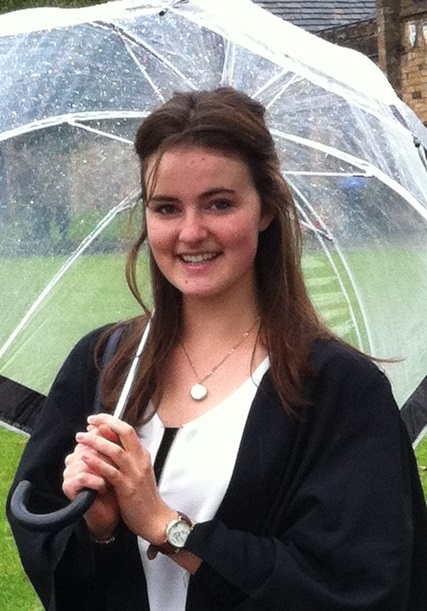
Insulin by Anna Tanczos, Wellcome Images. (CC-by-nc-nd4.0)
3 years ago I was diagnosed with Type 1 Diabetes. 5,925 injections later, I find it difficult to describe it in a factual, scientific way. Although the biology is fascinating, Type 1 is so much more than that. It’s the joy of having hot chocolate to treat a medical emergency. It’s the awkwardness of lifting up my skirt in public to inject. It’s the frustration of having had hypoglycaemia (low blood sugar) 8 times this week as I adjust to new insulin ratios. It’s preparing hot meals that go cold by the time I’ve tested my blood sugar, weighed my food, assessed the number of carbohydrates on my plate, considered what time of day it is, whether I plan to exercise later, if I fancy any wine with dinner, if I need to correct my current blood sugar, whether I’ll want more food when I’ve finished and finally calculated how many units of insulin to take, only to realise the cartridge has run out.

Insulin glucose metabolism By XcepticZP [Public domain], via Wikimedia Commons

Murine pancreas [beta-cells (red)] by Jürgen Mayer, Centre de Regulació Genòmica & Universitat Pompeu Fabra . Wellcome Images. (CC-by-nc-nd4.0)
This relationship between theory and experience is an important part of scientific study. Although I tend to prefer the theoretical side of Physics, experiments help solidify my understanding and there is a beautiful satisfaction in observing a physical system whilst knowing the mathematics behind it.
Similarly, as a Christian it’s important to have both an understanding of the Bible and an active relationship with God. It is one thing to believe a set of religious ideas, and another to let them impact how you live. For me, to know Jesus is not just to know the accounts of his life and teachings, but to know his transformational power[2], his peaceful presence[3] and his “very present help”[4] in daily life. The Bible discusses diabetes as much as www.nhs.uk describes the love of Jesus. Although the theoretical study of my faith and my condition seem so separate, I have found that some of my main experiences of Type 1 have also been my main experiences of God. His peace during my diagnosis, his strength to persist when it’s overwhelming, his perspective to see so many positives and his promise for healing – if not now, then in heaven. His love that defines me is more than a medical label, more than an emotion, more than a Christian cliché. It’s more than a theory written in a book, and he freely gives it to be experienced in abundance.
[1] http://www.nhs.uk/Conditions/Diabetes-type1/Pages/Introduction.aspx accessed 18/07/16
[2] Romans 8:11
[3] John 14:27
[4] Psalm 46:1, ESV

© Naomi Brehm
Naomi Brehm is currently studying Physics at Durham, where she co-leads the University College Christian Union. She enjoys teaching Science-Faith workshops in secondary schools with ‘God and the Big Bang’ and has recently become the undergraduate representative for the Christians in Science committee.




